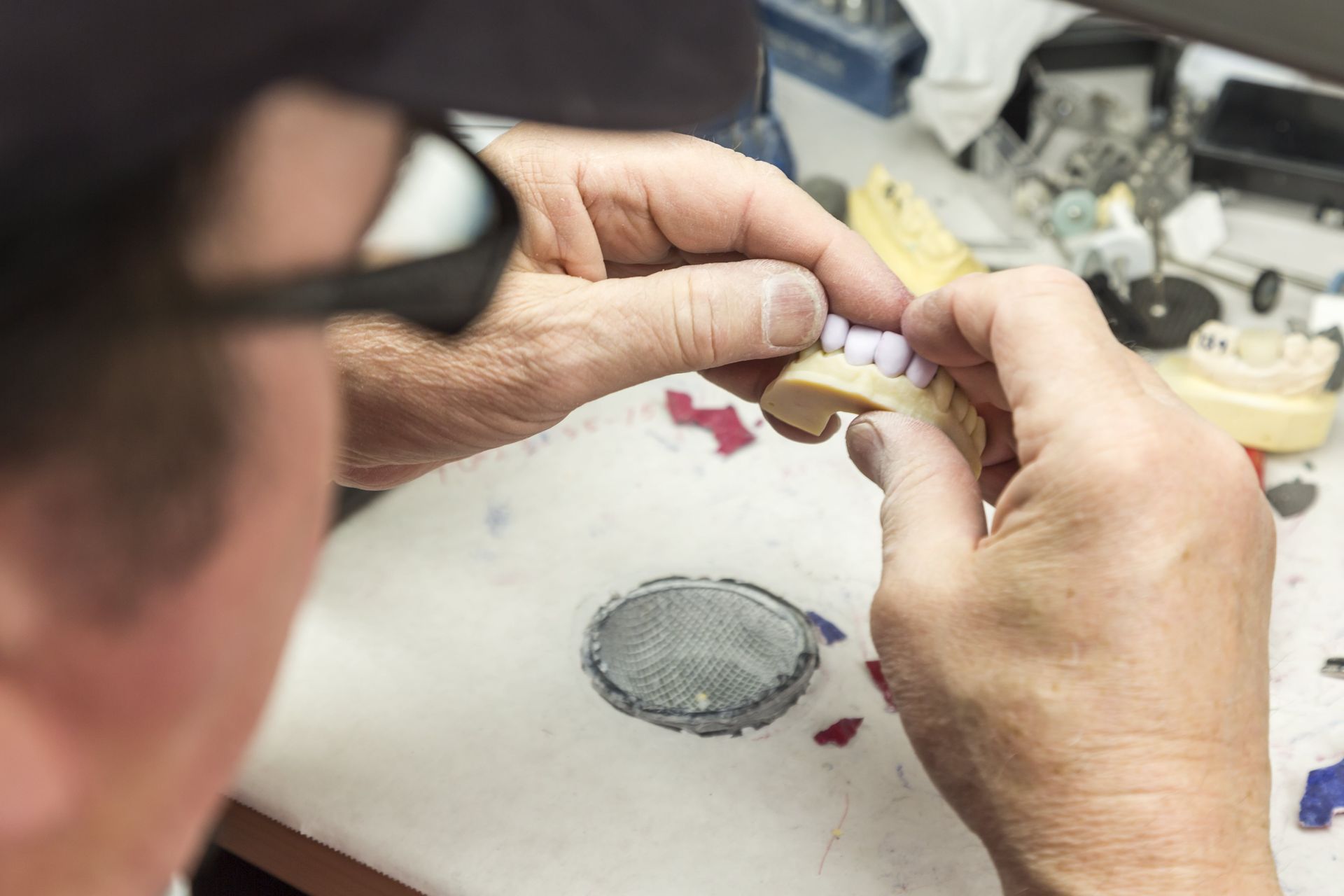Dental Implants: The Key To A Confident Smile And Better Oral Health
Dental implants are the ultimate solution for restoring oral health and confidence. These artificial tooth roots provide a stable foundation for replacement teeth that look and function just like natural ones. Unlike traditional dentures, dental implants offer a natural appearance, allowing you to smile confidently without anyone knowing you have replacement teeth.
In addition to the aesthetic benefits, dental implants improve oral function, allowing you to bite and chew your favorite foods without any limitations. This means you can enjoy a healthy diet and maintain your overall well-being. Dental implants also prevent bone loss, preserving the integrity of your facial structure. With their biocompatible materials, dental implants effectively fuse with your jawbone, promoting long-term stability and preventing adjacent teeth from shifting.
By restoring missing teeth with dental implants, you can enjoy numerous benefits, including improved oral health, a confident smile, and an enhanced quality of life.
Types of Dental Implants
When it comes to tooth replacement options, dental implants are an effective solution that can provide numerous benefits for oral health and quality of life. There are different types of dental implants available, each with its own features and benefits.
The first type is endosteal implants, which are the most common and widely used. These implants are made of titanium and are surgically placed into the jawbone. Once the implants have integrated with the bone, artificial tooth roots are attached to them to serve as a stable foundation for replacement teeth. Endosteal implants are suitable for most patients and can be used to replace a single tooth, multiple teeth, or even an entire arch.
Another type of implant is a subperiosteal implant. These implants are placed on top of the jawbone and beneath the gum tissue. Instead of being placed into the bone, they rest on a metal framework that protrudes from the gums. Subperiosteal implants are ideal for patients who do not have enough healthy natural bone for traditional implants.
Zygomatic implants are a more specialized type of implant used in cases where there is severe bone loss in the upper jaw. These implants are anchored in the zygomatic bone, which is the cheekbone, providing a stable foundation for replacement teeth.

The Procedure for Dental Implants
Dental implants are a popular and effective solution for replacing missing teeth and restoring oral health. The procedure for dental implants typically involves several stages, starting with a thorough examination and assessment of the patient's oral health and treatment goals.
Placement of the Titanium Post
The placement of the titanium post is a crucial step in the dental implant procedure. This small post, typically made of biocompatible materials like titanium, is carefully positioned and securely anchored into the jawbone to serve as the foundation for the replacement teeth.
During the placement procedure, the oral surgeon or implant dentist will carefully drill a small hole into the jawbone to accommodate the titanium post. This post is then inserted into the hole, allowing it to become an artificial tooth root. The precision of this placement is essential as it ensures stability and strength in supporting the replacement teeth.
Creating a stable foundation is of utmost importance in dental implant procedures. By securing the titanium post within the jawbone, it provides a strong base for the replacement teeth. This stability allows for proper alignment and prevents movement or shifting, ultimately resulting in a natural and comfortable bite.
One of the key factors contributing to the stability of dental implants is a process called osseointegration. This phenomenon occurs when the bone tissue in the jaw fuses with the surface of the titanium post, creating a strong bond. Over time, the bone growth around the implant further enhances its stability and ensures long-term success.
Attaching the Artificial Tooth Root
After carefully drilling a small hole into the jawbone during a dental implant procedure, the artificial tooth root is attached to the previously placed titanium post. The artificial tooth root, typically made of biocompatible materials such as titanium, is securely fastened to the post to create a stable foundation for the replacement tooth/teeth.
The attachment of the artificial tooth root is crucial for the success of dental implants. The titanium post acts as an anchor, providing support and stability for the replacement teeth. The artificial tooth root is then meticulously attached to the post using advanced dental techniques, ensuring a secure connection.
The use of biocompatible materials, like titanium, is important as it allows the artificial tooth root to integrate seamlessly with the surrounding bone tissue. This integration process, known as osseointegration, promotes the growth of new bone cells around the implant. This further enhances its stability and durability over time, allowing the implant to function and feel like a natural tooth.
Placing the Replacement Tooth/Teeth
When it comes to dental implant procedures, the placement of the replacement tooth/teeth is a crucial step in restoring your smile and oral health. After the artificial tooth root, or implant post, has been securely anchored into the jawbone, the next phase involves attaching the artificial teeth.
The method of attaching the artificial teeth to the implant posts varies depending on the specific situation and the patient's needs. One common option is the use of dental crowns. Dental implant crowns are custom-made to match the shape, color, and size of your natural teeth, providing a seamless blend and a natural appearance. These crowns are then carefully affixed to the implant posts, creating a stable and functional replacement tooth.
Another viable option for replacement teeth is dental bridges. Dental bridges are ideal when there are multiple missing teeth in a row. The bridge consists of one or more prosthetic teeth, known as pontics, which are anchored to the surrounding implant posts or natural teeth. This provides a stable and aesthetically pleasing solution, restoring both the functionality and the appearance of your smile.
Regardless of the type of replacement tooth/teeth chosen, the overall goal of dental implant procedures is to recreate a healthy and confident smile. With the secure attachment of artificial teeth, you can enjoy the freedom to eat your favorite foods, speak clearly, and smile with confidence.

Advantages of Dental Implants Over Other Tooth Replacement Options
Dental implants offer numerous advantages over other tooth replacement options, making them a preferred treatment for those seeking a confident smile and improved oral health. Unlike traditional dentures or dental bridges, dental implants provide a permanent and stable solution by anchoring artificial teeth to the jawbone using titanium posts.
This ensures a natural appearance, proper alignment, and functionality, allowing individuals to enjoy their favorite foods and engage confidently in social situations. Dental implants also preserve the integrity of surrounding bone tissue, preventing bone loss and maintaining facial structure. With their range of benefits and long-lasting results, dental implants have become the preferred choice for individuals looking for a durable and effective tooth replacement option.
Natural Appearance and Feel
Dental implants are a remarkable solution for missing teeth, offering a natural appearance and feel that closely mimic real teeth. Their ability to restore function and boost confidence is due to the use of biocompatible materials and the placement of an artificial tooth root.
The biocompatible materials used in dental implants ensure a comfortable and secure fit within the jawbone. The titanium post serves as an artificial tooth root, providing a stable foundation for the replacement tooth. This integration between the implant and bone allows for a natural feel when eating and speaking, similar to that of natural teeth.
The natural appearance of dental implants is enhanced by their stability and durability. Unlike traditional dentures or other tooth replacement options, dental implants are firmly anchored in the jaw, preventing any slippage or movement. This stability also promotes proper alignment of neighboring teeth, preserving facial structure and preventing bone loss.
With dental implants, you can confidently enjoy your favorite foods and engage in social situations without worrying about artificial teeth shifting or falling out. The natural appearance and feel of dental implants can significantly improve your quality of life, allowing you to smile confidently and enjoy a wide range of benefits.
Improved Quality of Life
Dental implants offer a remarkable improvement in quality of life for patients dealing with tooth loss. By providing a stable foundation for replacement teeth, dental implants restore the ability to eat favorite foods, speak clearly, and smile confidently.
Unlike traditional dentures or other tooth replacement options, dental implants are firmly anchored in the jawbone. This stability prevents any slippage or movement, allowing patients to comfortably enjoy their favorite foods without worrying about artificial teeth shifting or falling out. With dental implants, chewing becomes easier and more natural, restoring the pleasure of eating.
In addition to eating, dental implants also contribute to clear speech. The integration between the implant and bone creates a solid foundation, enabling patients to pronounce words clearly and communicate effectively. This renewed ability to speak with confidence can significantly improve social interactions and overall self-esteem.
Furthermore, dental implants play a vital role in preserving facial structure and proper alignment of neighboring teeth. Without a tooth root, the jawbone can start to deteriorate, resulting in bone loss and changes in facial appearance. Dental implants stimulate bone growth and prevent this deterioration, thus maintaining facial structure and preventing shifting of adjacent teeth.
Dental implants not only restore functionality but also enhance the aesthetics of a smile. With their natural appearance and feel, dental implants blend seamlessly with the remaining teeth, allowing patients to smile confidently once again. This boost in self-confidence can positively impact various aspects of life, including personal relationships, professional opportunities, and overall well-being.
No Adjacent Teeth Compromised
One of the key advantages of dental implants is that they offer a tooth replacement solution that does not compromise the adjacent teeth. Unlike other tooth replacement options such as dental bridges, which rely on neighboring teeth for support, dental implants are independent and self-sustaining.
By using a titanium post that acts as an artificial tooth root, dental implants are directly implanted into the jawbone. This means that neighboring teeth are not used as anchors or supports for the implant. As a result, adjacent teeth are not subjected to any additional stress or strain, which can occur with other tooth replacement options.
Furthermore, dental implants actually help prevent the shifting or movement of neighboring teeth. When a tooth is lost, the surrounding teeth can start to drift and shift into the empty space, causing misalignment and bite problems. Dental implants take up the space of the missing tooth and provide a stable foundation, preventing neighboring teeth from moving out of their proper positions.
Routine Care After Receiving Dental Implants
After receiving dental implants, it is crucial to follow proper routine care practices to ensure their long-term success. Here are some important steps to consider:
- Oral Hygiene Practices: Maintaining good oral hygiene is key to the longevity of dental implants. Brush your teeth at least twice a day with a soft-bristled toothbrush and fluoride toothpaste. Remember to clean all surfaces of the implant, surrounding teeth, and gums. Flossing between the teeth and using an antimicrobial mouthwash can also help remove plaque and bacteria.
- Regular Dental Visits: Schedule routine visits to your dentist for professional cleanings. These cleanings focus on removing any tartar or plaque buildup that cannot be addressed through regular brushing. Dentists can also evaluate the condition of your implants and address any potential issues before they worsen.
- Healing Process: After the implant procedure, it is important to understand the healing process. Initially, there may be some discomfort, swelling, and bruising, which can be managed with over-the-counter pain medication and ice packs. It is vital to follow your dentist's instructions regarding diet restrictions and post-operative care to promote proper healing.
- Complications to Watch For: While complications are rare, it is essential to be aware of potential signs. Contact your dentist if you experience severe pain, excessive swelling, prolonged bleeding, or implant movement. Early intervention can help address any issues and ensure the success of your dental implants.
By following these routine care practices and maintaining proper oral hygiene, you can maximize the lifespan of your dental implants and enjoy a confident smile for years to come.

Conclusion
In conclusion, maintaining good oral hygiene practices and regular dental visits like in The Scottsdale Dentist are vital for the longevity of dental implants. These implants offer numerous benefits over traditional tooth replacement options, such as dental bridges and removable dentures. Dental implants provide a stable foundation and natural appearance, allowing for a confident smile and the ability to enjoy favorite foods. Don't let tooth loss hold you back when there is a solution that can restore your smile and quality of life.



